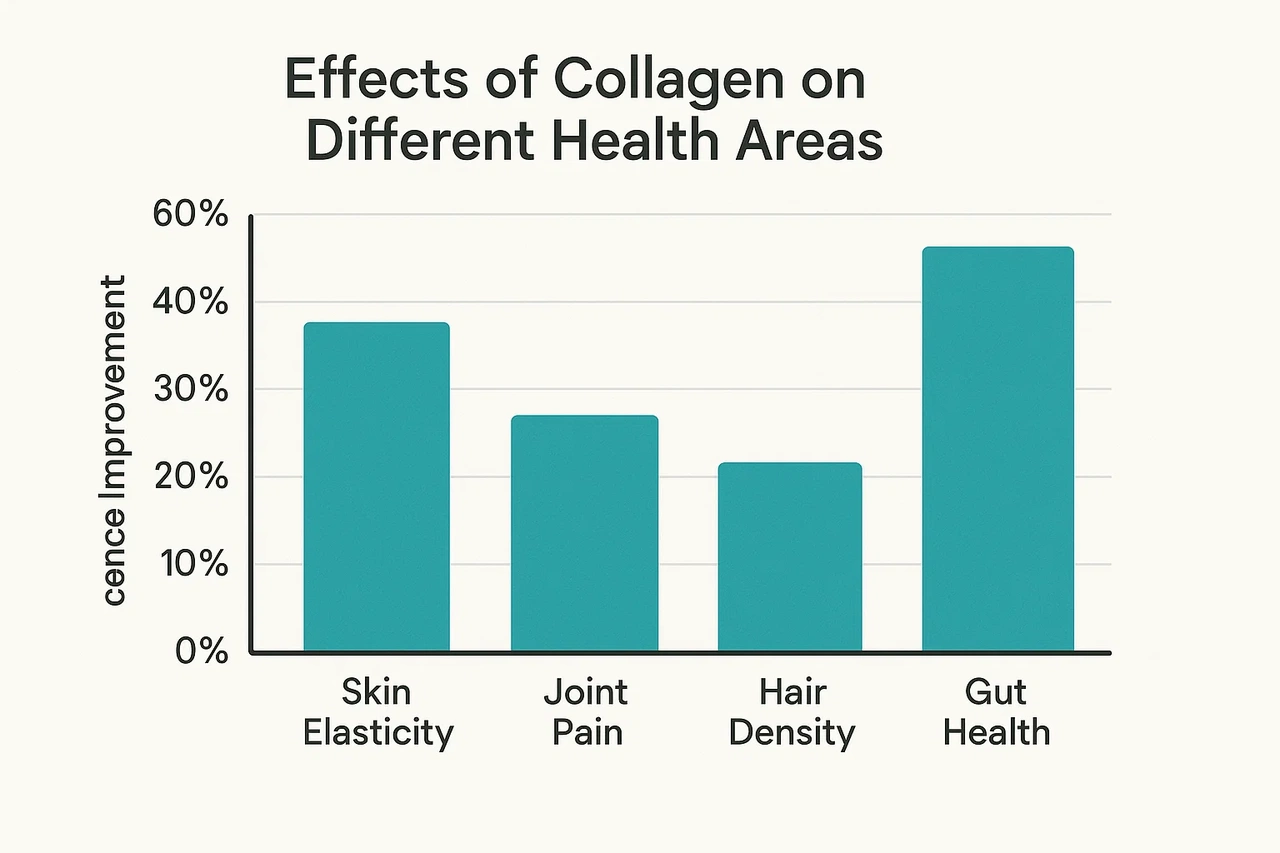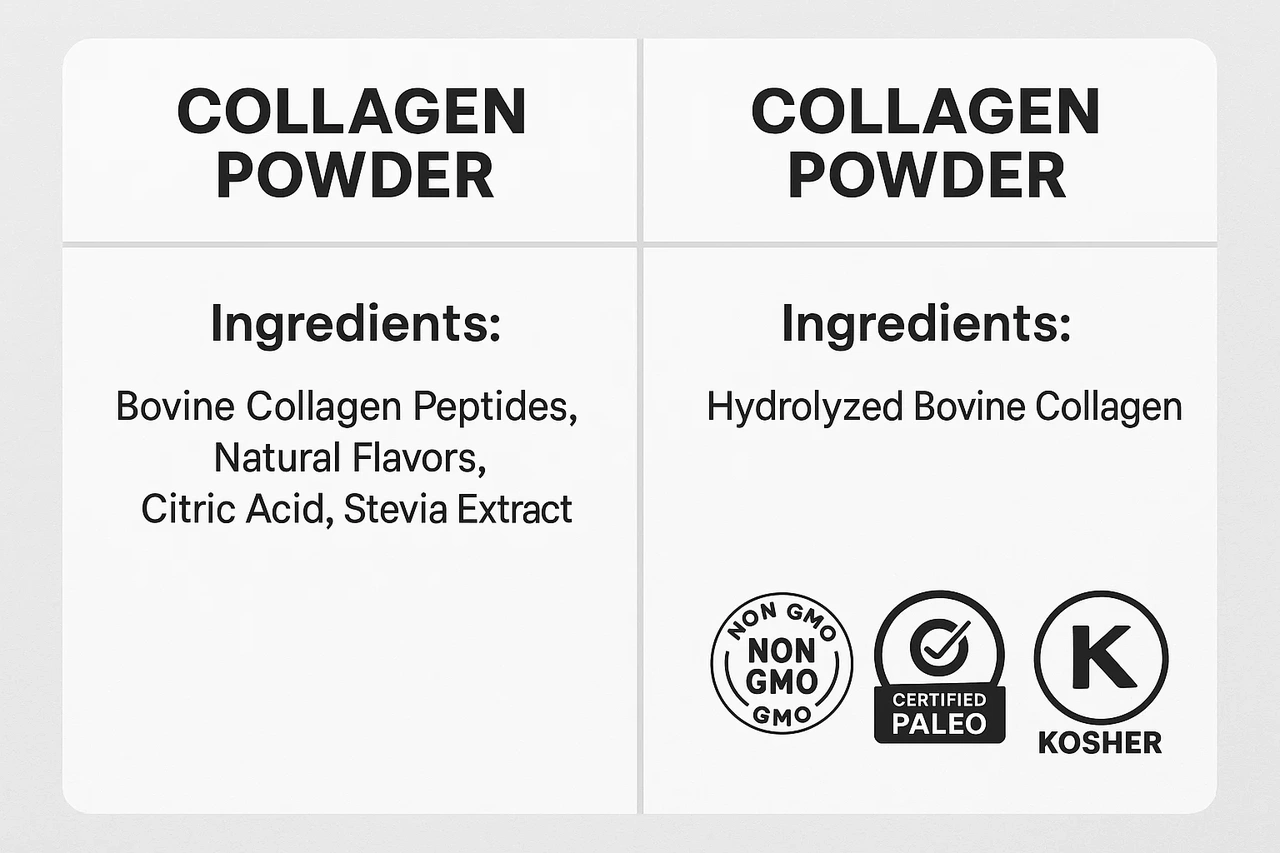The Collagen Craze Revisited: What the 2025 Meta-Study Really Tells Us
If you’ve been alive and on social media in the last five years, you’ve seen it. The pastel-tinted powders. The frothy morning collagen lattes. The glowing influencers claiming dewy skin, smoother joints, and better sleep — all thanks to a scoop of “hydrolyzed peptides.” In 2025, collagen supplements remain a $9.8 billion industry, and growing.
But here’s the twist: This year, the largest meta-analysis of collagen supplementation to date — funded by an international coalition of research universities and partially overseen by the European Medicines Agency (EMA) — was published. It pooled 84 randomized controlled trials involving over 36,000 participants, across age groups, genders, and health conditions.
And it didn’t just ask does collagen work? It asked something deeper: What does the obsession with collagen say about us — and what are we really trying to fix?
The Good, the Not-So-Good, and the Surprising

Let’s start with the findings. Collagen does offer modest, measurable benefits in a few key areas:
- Skin elasticity improved by 8–15% in people over 40
- Joint discomfort was reduced by about 12–18% in people with mild osteoarthritis
- Hair density improved in postmenopausal women when collagen was combined with biotin and iron
But — and this is a big one — collagen supplementation didn’t outperform placebo significantly in categories like gut health, sleep quality, or muscle mass when controlling for protein intake. This matters because the marketing around collagen has been… let’s say, overzealous. Collagen has become a catch-all promise, a soft-spoken antidote to the anxieties of aging in a culture obsessed with youth.
Beauty, Bioavailability, and the Cult of Simplicity
What I found most compelling about the study wasn’t the numbers, but the commentary. One of the co-authors, Dr. Ana Ilic, said in an interview:
“Collagen’s popularity has less to do with clinical superiority and more to do with psychological accessibility. It feels gentle, feminine, natural — but also scientific enough to feel trustworthy.”
That hit me hard. Because as a woman in her 40s, I’ve seen this shift in the way supplements are marketed — especially to us. Collagen is sold as graceful resistance. Unlike retinol, it doesn’t sting. Unlike Botox, it doesn’t paralyze. It’s whispered wellness, not shouted vanity. But this “gentle science” also hides real blind spots. For one, many consumers don’t realize that collagen is an animal product, and ethical sourcing is wildly inconsistent. Second, not all collagen supplements are created equal — hydrolyzed vs. tripeptides vs. native forms vary in bioavailability, and most brands still aren’t transparent about molecular weight or sourcing.

The Gendered Science of Supplements
Let’s talk about something we don’t say enough: how gendered the supplement industry really is. The collagen boom is part of a larger trend I call “the feminization of molecular wellness.” While creatine, BCAAs, and protein shakes were once coded masculine, today’s wellness space offers peptides in pink packaging, hormone-balancing drops, and mood-enhancing adaptogens designed to look like luxury skincare.
It’s not inherently bad. But it often masks the fact that evidence remains patchy, and research on women’s health lags behind in critical areas. Out of the 84 studies analyzed in the 2025 meta-review, fewer than 15 included hormonal phase tracking, which can dramatically affect collagen metabolism. We deserve better. We deserve products that don’t just flatter us with “femininity,” but also respect our biological complexity.
So... Should You Keep Taking It?
Here’s where I land — and I hope it doesn’t disappoint. If you love your collagen routine, and it makes you feel good, and you’re not going into debt to afford it — keep going. Rituals matter. And in a wellness world that often feels chaotic, that little scoop in your smoothie can be soothing. But also: Be curious. Ask questions. Read the fine print. Look for clinical backing, sourcing transparency, and realistic claims. And remember that true skin health, joint resilience, and emotional wellbeing aren’t found in one protein molecule — they come from an orchestra of habits: food, sleep, sun, movement, and yes, sometimes, a scoop of powder.
Looking Forward: The Future of Beauty-from-Within
The real legacy of the 2025 collagen study might not be its numbers, but its invitation: to step back from marketing and return to meaning. To ask not just “what works,” but “what are we hoping to feel?” Because the rise of collagen isn’t just about skin — it’s about wanting to be more at home in our bodies, gently, wisely, and without shame.

Close